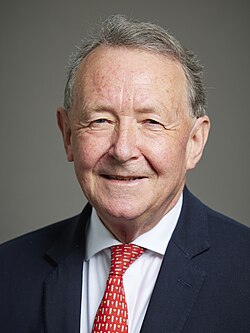Lord Alton
I have seen this story before. A decade ago, I wrote about Syria’s suffering, the refugee crisis, and the desperate need for safe havens – places where people could find hope, rebuild their lives, and reclaim their dignity. Today, I find myself reflecting on Libya – a country standing at a similar crossroads, but one that holds the promise of renewal and reinvention.
The symptoms are familiar: refugee crises, regional instability, and economic hardship. To treat migration as a standalone issue is to misread the entire picture. Irregular migration is not the root cause – it is the result. The real issue lies in the enduring fragmentation of the Libyan state and the presence of armed groups, particularly in the east, but also to the south-west, who exploit migration as leverage against both national authorities and the international community.
There is no quick fix. But there is a long-term solution: invest in stability where the crisis begins – at home. This means backing governments that are genuinely working to restore sovereignty, build institutions, and reconnect fractured societies. In Libya, this effort is underway through the United Nations recognised Government of National Unity (GNU), which continues to push back against fragmentation and restore the foundations of a sovereign state, getting militias under control.
The recent trilateral talks in Istanbul – bringing together the leaders of Libya, Türkiye, and Italy – highlighted the strategic importance of regional cooperation across the Euro-Mediterranean. These engagements reflect not only the GNU’s commitment to regional stability, but also the GNU’s interest in coordinating with the international community as a responsible partner.
To succeed in this progress, the GNU and international partners must pursue a coordinated strategy – one that empowers Libya and Europe to work side by side towards stability and long-term self-sufficiency in the entire region. This will require the alternative government, controlled in the East of Libya by Khalifa Haftar, to be pressed to commit to supporting a return to democracy, previous progress towards which he and his supporters derailed.
There can be no real peace until Haftar disarms, disentangles himself from the criminal gangs driving human trafficking, and ceases drawing down money from the Central Bank to fund his empire, an empire that is built on fear, intimidation and repression. The United Nations and the wider international community should accept that it is Haftar and his supporters in the militias, and the criminal families and networks with which he is in cahoots, that must be pressed fundamentally to change their position.
Ten years ago, I spoke of the need to establish internationally protected safe havens – places where people could begin again. I described them as a potential “new Carthage” in North Africa, modelled on the modern city-state of Singapore.
Today, that metaphor feels more relevant than ever. Libya’s cities, just like many others, have the potential to be a new Carthage for the 21st century – self-sufficient urban centres driving economic growth and offering opportunities for work and education.
Libya’s wealth in natural resources and solar energy, combined with its strategic location in the Mediterranean, offers a strong foundation. We should imagine these new Carthage-inspired cities as technology-driven hubs, where brilliant technology and solar power converge to deliver sustainable energy and desalinated water.
But this future depends on more than resources. It requires legitimacy, rule of law, and the social contract that only comes with a unified constitution, functioning institutions, and fair elections. It also requires collective interest – people will only make their lives in these new Carthages if international partners help guarantee stability by providing an international security mandate while these cities are being established.
It is time for the international community to move beyond short-term fixes and support long-term institutional rebuilding. What Libya needs now is a chance to consolidate progress, by disarming warlords, militias and criminal gangs, and in these tasks the GNU is now having some success. Only when this is done, can the country move towards a constitution and elections, and finally to reassert full sovereignty.








 English
English Español
Español Deutsch
Deutsch Français
Français العربية
العربية